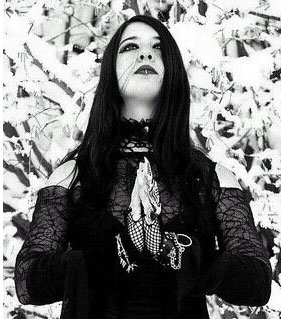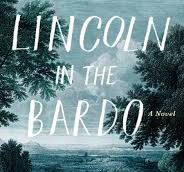 For most people – believers or not – the idea of Christian heavy metal is a non sequitur. Isn’t heavy metal all about black leather, power chords and Satan? Yet Christian metal has been around for decades in the US, and a small but committed underground scene exists in the UK.
For most people – believers or not – the idea of Christian heavy metal is a non sequitur. Isn’t heavy metal all about black leather, power chords and Satan? Yet Christian metal has been around for decades in the US, and a small but committed underground scene exists in the UK.
Christian metal first emerged in the 1980s against the backdrop of moral panics against metal from many Christians, particularly the evangelical right, who accused it of inciting teens to Satanism and violence. Caught between an often suspicious Christian world and an often contemptuous metal world, Christian metallers have taken a variety of approaches to their music. At one end are those like big-haired ’80s glam metal preachers Stryper who have used (and abused) metal more or less cynically for evangelical ends, slicing off transgressive metal lyrics and imagery and replacing them with “good news” messages, and tossing Bibles into the audience at their shows. Stryper have little credibility in the metal world proper, but as Christian metal has evolved, more and more fans and artists have insisted that metal can have a spiritual value in and of itself, and maintain a commitment to authentic metal music. As the Christian extreme metal slogan put it: “Faster for the master!’”
There are more Christian metal bands than you might think and many of them are better than you might imagine (credible Xtian metallers include the bands Believer [listen here], Living Sacrifice and Antestor). What might look to some like a bizarre and self-contradictory subculture is in fact a fascinating microculture that reveals much about the nature and role of contemporary religion.
As a non-fundamentalist Jewish metalhead, I have always been fascinated by Christian metal. It was this fascination that in 1999 forced me to suppress my fear of spiders and enter Michael Bryzak’s tarantula-filled bedroom. Admittedly the tarantulas were in cages, but I could never quite forget their presence as I interviewed Michael as part of my PhD research into extreme heavy metal. Then in his early 20s, Michael was an enthusiastic Christian metaller (and tarantula buff) whose band Paradox was at the time one of the few Christian bands on the UK metal scene. I listened as Michael told me how he became a Christian in his teens and how the Christian metal scene was bigger and more diverse than I had imagined.
Fast forward 14 years and I’m sitting in the back room of a church in Camden, with Michael now one of the leaders of the Glorious Undead church. It was immediately clear that Glorious Undead, despite the metalish name and the gothic fonts on the website, wasn’t really a metal church. It was founded in 2002 not just for metallers but for anyone from alternative subcultures. Over time, though, its connection to these subcultures has become weaker and the 15 people who attended the service I witnessed didn’t look that different from any other collection of (mostly white) people. There was nothing metal about the service either. Affiliated to the Elim Pentecostal Church, the church emphasises drawing nearer to God. A small band led the congregation in contemporary worship music; there was space for private and collective spontaneous prayer; there was preaching (from Michael’s mother); there was communion. Glorious Undead was welcoming and modest, but not really very alternative.
If Michael Bryzak’s church had moved away from metal, he himself had in some ways moved closer to it in the 14 years since I had last seen him. In 1999 he mostly eschewed non-Christian metal, but when I spoke to him on the phone a couple of days after the service, he seemed much more relaxed. Although he plays in a Christian metal band, Bloodwork, he has no need for a Christian metal scene: “Why hide from the world? I prefer being with normal metallers!” Indeed, we discovered we were both going to see emphatically unchristian death metal legends Carcass the next week. Glorious Undead, though, while it had experimented with metal and other alternative music in worship, ultimately decided that “it’s too hard to sing along with”. So, even as Michael is happy to be a Christian in the metal scene, his church is only tenuously connected to it now.
Glorious Undead was born when it broke away (amicably) from Asylum, a Christian fellowship formed in the mid-1990s that has met ever since at the Intrepid Fox pub in central London. It still runs a monthly club night, with DJs and bands playing a mixture of Christian and non-Christian metal and alternative music. It also has a weekly Sunday meeting that avoids worship in favour of discussion.
When I turned up one freezing spring Sunday afternoon, it was clear that Asylum was much more metal/alternative than Glorious Undead. The Intrepid Fox is one of London’s most popular rock bars and the upstairs room where Asylum meets was decorated in black and festooned with posters of Motorhead’s Lemmy and other metal royalty.
There were only three other people at Asylum that day; I was told that they usually have a few more but it’s the monthly club that is best attended. Of the three, the most unusual and charismatic was Britain Sully, part of the Asylum “crew”. An artist, writer, alternative model, cabaret performer and DJ, she’s certainly no Christian stereotype. For no particular reason Britain bought along a stuffed weasel wearing a top hat; “I like dead things,” she explained.
Asylum tries to be as welcoming as possible. Acknowledging that a lot of people in alternative subcultures have had bad experiences with Christianity, they constantly emphasise that they don’t believe in religion (as did Glorious Undead). They claim not to judge. Rather, they want people to come to Asylum to be comfortable, to find a place where they can discuss whatever they want and – if that’s what they want – to come closer to God.
Still, Asylum is definitely a Christian space. Worship music was played and Bibles were on the table. Britain introduced a text from the Bible, John chapter 8, where Jesus refuses to condemn a female adulterer, saying, “Let him without sin cast the first stone.” This was a key text for Asylum; the example that Jesus set was not to judge but to nurture people on their journey towards God. The other stuff (sexual morality in particular) will come in its own time.
I liked the people I met at Asylum and Glorious Undead. They were genuinely open and friendly, even if there was a bottom line (however much they might hide it). There was no disguising, though, that attendance was pretty sparse. It’s striking that a city as big as London can’t sustain anything more than a couple of tiny metal/alternative churches. Outside London, there is a similar project in a C of E church in Chesterfield called the Order of the Black Sheep. Other than that, there are occasional festivals and shows, but Britain’s Christian metal/alternative scene is small and hardly thriving.
Elsewhere in the world, things are a bit different. There are many Christian metal bands across Scandinavia and the “metal mass” run by a Lutheran pastor in Helsinki attracts hundreds of people. In the US, there are many churches for Christian metallers, the best-known being the Sanctuary organisation run by the charismatic Pastor Bob Beeman.
Michael Bryzak doesn’t want a separate Christian metal/alternative scene in the UK. But I’m not sure that the lack of one is a sign of people like him being out in the world, so much as it is a reflection of there not being much interest in this type of Christianity in metal or in this country as a whole.
I couldn’t help thinking that Asylum and Glorious Undead may be missing a trick. Trying hard to be welcoming and rejecting many of the trappings of organised religion may not be as effective a strategy as they might think. Perhaps more than any other subculture, metal is fascinated with ritual and with extreme viewpoints. After all, many of those who love black metal’s vicious, ritualistic invocations of Satanism are not themselves Satanic, they just love the imagery and the frisson of fanaticism.
Christianity has all of this in abundance. It has a history of incredible and often very violent art, a history of intricate ritual and a history of fanaticism. Maybe if Christian metallers embraced this history, rather than focusing solely on connecting to God, they’d get more interest.
Still, what do I know? I’m not a Christian and this isn’t my struggle. In my brief foray into metal(ish) Christianity I came away feeling a genuine respect for the people I met, but their message left me completely cold.

